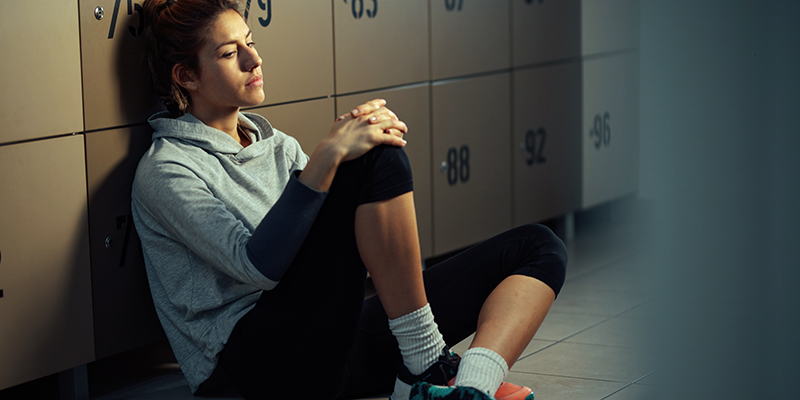
A Loughborough University study is exploring the relationship between thinking styles, wellbeing and behaviours in the athlete population.
After a turbulent year for elite-level sport, researchers will examine how athletes have coped juggling training, competition, and daily life during the Covid-19 pandemic.
Many athletes also faced disruption to their competing schedules with national and international competitions either postponed or cancelled – including the Olympic and Paralympic Games in Tokyo.
Athletes may have also had difficulty accessing their regular training facilities and equipment, making the maintenance and improvement of performance levels, as well as immediate sporting goals, a further challenge.
It is believed that restrictions to training and competition has resulted in isolation from training partners, teammates, coaches and fans, with many athletes experiencing the additional strain of financial difficulty as funding and contracts have been cut.
“The pandemic is yet another challenge for athletes to navigate in addition to the daily stressors of life while training and competing,” commented PhD student Ailish King, who is working on the project.
“This research seeks to gain an understanding of thinking styles, wellbeing and behaviours in athletes. It is through a comprehensive understanding that we can begin to formulate applied practice contributions for athlete wellbeing and mental health.”
For researchers to better understand the impact of the last year, athletes are invited to participate in an online survey which will take approximately 30 minutes to complete.
The study will help the research team to develop resources for athletes to help them to navigate the challenges of the pandemic, and to support their longer-term wellbeing and mental health.
Dr Jamie Barker, lead supervisor added:
“Our research aims to explore the link between how athletes see themselves and the worlds in which they operate in, and how such thoughts can influence their wellbeing.
“For example, athletes with high and rigid expectations may experience high levels of anxiety and subsequent burnout. Once we are able to determine such links, we can then begin to develop effective ways to promote effective thinking styles and wellbeing in athletes of all levels and across the lifespan.”
The surveys can be completed here: 18-30 age bracket, 15-18 age bracket, 12-15 age bracket, with the full results of the study expected in December 2021.
Last updated March 2021